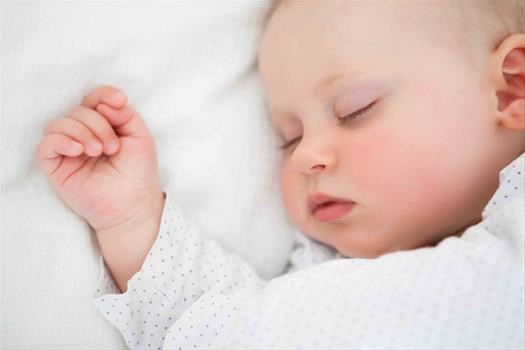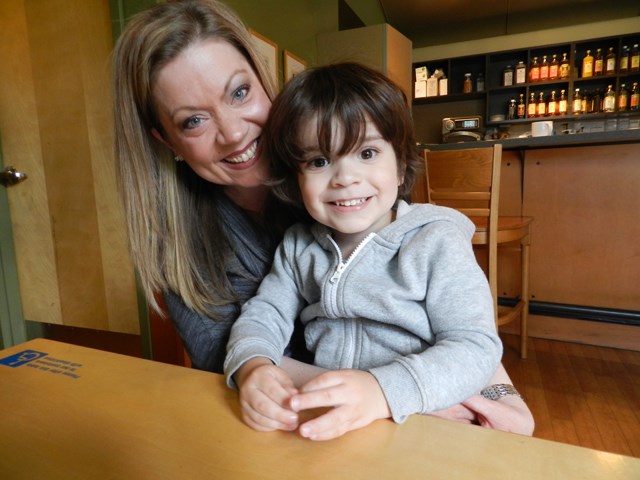Few of us could turn down the offer of a good night’s sleep with the relaxation and regeneration it can provide.
But for some new parents, a good stretch of unbroken sleep for themselves, and their offspring, can be a fleeting thing.
Parents can be up for great lengths of time trying, sometimes desperately, to get their little ones to nod off fully, and for long enough, to get some much-needed shut eye for themselves.
While there’s no real wave of a magic wand to how that can be achieved for all families, a new sleep consultant service for young children has begun offering some guidance.
Called WeeSleep (weesleep.ca), it worked so well for former Steveston resident Kristen Jooste that she signed on to become one of three consultants offering advice to families across the Lower Mainland.
“As a new parent I ended up doing whatever it took to get my son to sleep,” said Jooste, who would often be up all hours with her son, Charlie, attempting to put him down to bed. “He didn’t want to sleep on his back. He would sleep on me, which was fine. But every time I would get up to try and put him in his crib, he’d wake up and wouldn’t sleep.”
After suffering many long, sleep-deprived nights, a friend of Jooste’s suggested a sleep consultant.
“I’d never even heard of it,” Jooste said. “So, I decided what the heck, it couldn’t hurt. I didn’t know what they would do.
“He (Charlie) wasn’t a bad sleeper, he just wasn’t sleeping in his crib. He was sleeping with my husband and I in our bed.”
What happened was a consult of about an hour and half with a WeeSleep representative to find out what Charlie’s sleep schedule was and a plan was devised from that.
Sounds simple? It involved getting Charlie on a new routine that was introduced over a period of 10 days.
“That was just to guide him to get himself to sleep in his own crib,” Jooste said.

It was a success.
“By night number two, Charlie was sleeping 12 hours a night.” One of the keys to getting a sleep plan to work involves just that — a plan.
WeeSleep consultants start by asking the right questions, Jooste said, explaining that usually begins with finding out how the client’s baby falls asleep.
“A lot of the time it’s during breastfeeding, rocking or walking — that’s the crutch which is getting them to sleep,” she said. “The whole point is getting your baby to go to sleep on their own.
“It’s a matter of giving them (parents) the tools which will give them the confidence to be able to put their baby to sleep and not give in. So, when the baby wakes up in the middle of the night, they are able to put themselves back to sleep instead of waking up mom and dad.
“They don’t need that soother. They don’t need mommy. They don’t need anything.”
Charlie is now three and he’s become a good, consistent sleeper. Much of that is attributed to adhering to the plan.
“Kids, they love consistency,” Jooste said. “For Charlie, he needs to know that bath time is coming up and then after bath time it’s bed time. He knows the routine. He knows what’s coming.”
But that can present challenges for some families who want to continue with a normal social life with friends and family. But when the benefits of a well rested child, and parents, is the result, scheduling activities that don’t interrupt the sleep plan are easy to make, Jooste said.
“People used to make fun of my husband and I because when we got invited out for dinner we had to tell people that we needed to leave at 6:30 p.m. to start Charlie’s bath time and get him into bed by 7:15 p.m.,” Jooste said.
“At first, friends didn’t get it. Now, they do. Or they just come over to our house, instead, so they can visit a little longer.”
Good sleep periods for parents, and children, are essential to maintaining a healthy life, according to various studies and baby sleep experts.
According to Mental Health Canada, infants generally require about 16 hours a day, while teenagers need about nine hours on average. For most adults, seven to eight hours a night appears to be the best amount of sleep, although some people may need as few as five hours or as many as 10 hours each day.
When you don’t get the amount of sleep that’s right for you, it can lead to significant problems, according to Dr. Bryan Soloman’s website, thebabysleepdoctor.com.
For adults, it can include depression, anxiety, stress, aggression, an impaired immune system and even a loss of libido.
For children, the impact of chronic tiredness can vary with their age.
Babies in their first year can experience tearfulness for no obvious reason which can often be mislabelled as wind, colic, reflux, silent reflux, teething or abdominal pain.
It can also result in decreased weight gain due to poor or incomplete feeds.
In other cases, it can manifest itself in decreased rates of learning, delayed speech and walking, as well as emotional fragility.
While that can sound pretty serious, each case can differ greatly, just as successful sleep plans do.
Jooste works with children aged from four months.
“Thirteen pounds, 13 weeks. That’s the rule. After that, a baby can sleep through the night,” she said. “Generally, anything younger than that it’s hard to get them into a full night’s sleep.”
Between six months and a year is the most common age for clients.
But in today’s fast-paced world, is there enough need for a sleep consultant?
“There is,” Jooste said. “It’s one of those things that people don’t know about until they are in the situation.
“When you start talking about it, there’s always someone who knows someone else who is going through this.”



